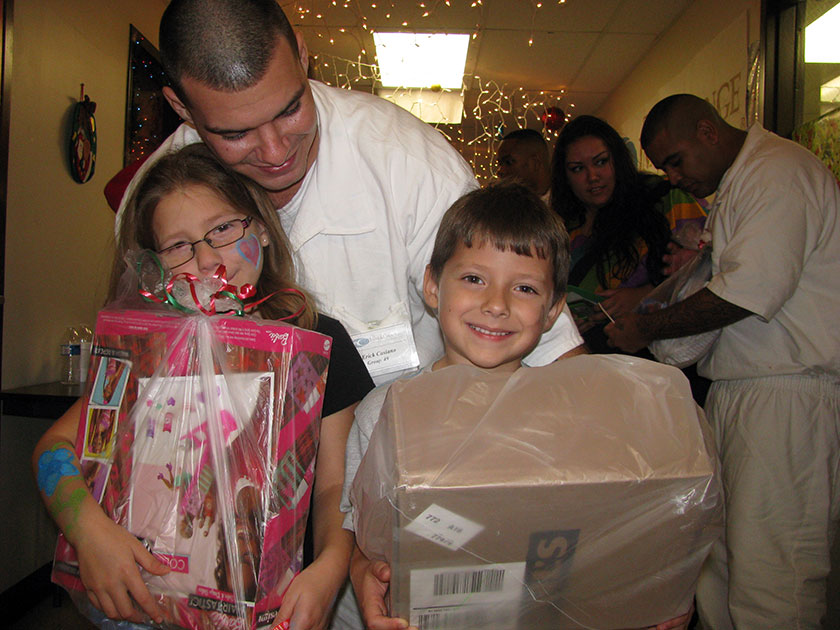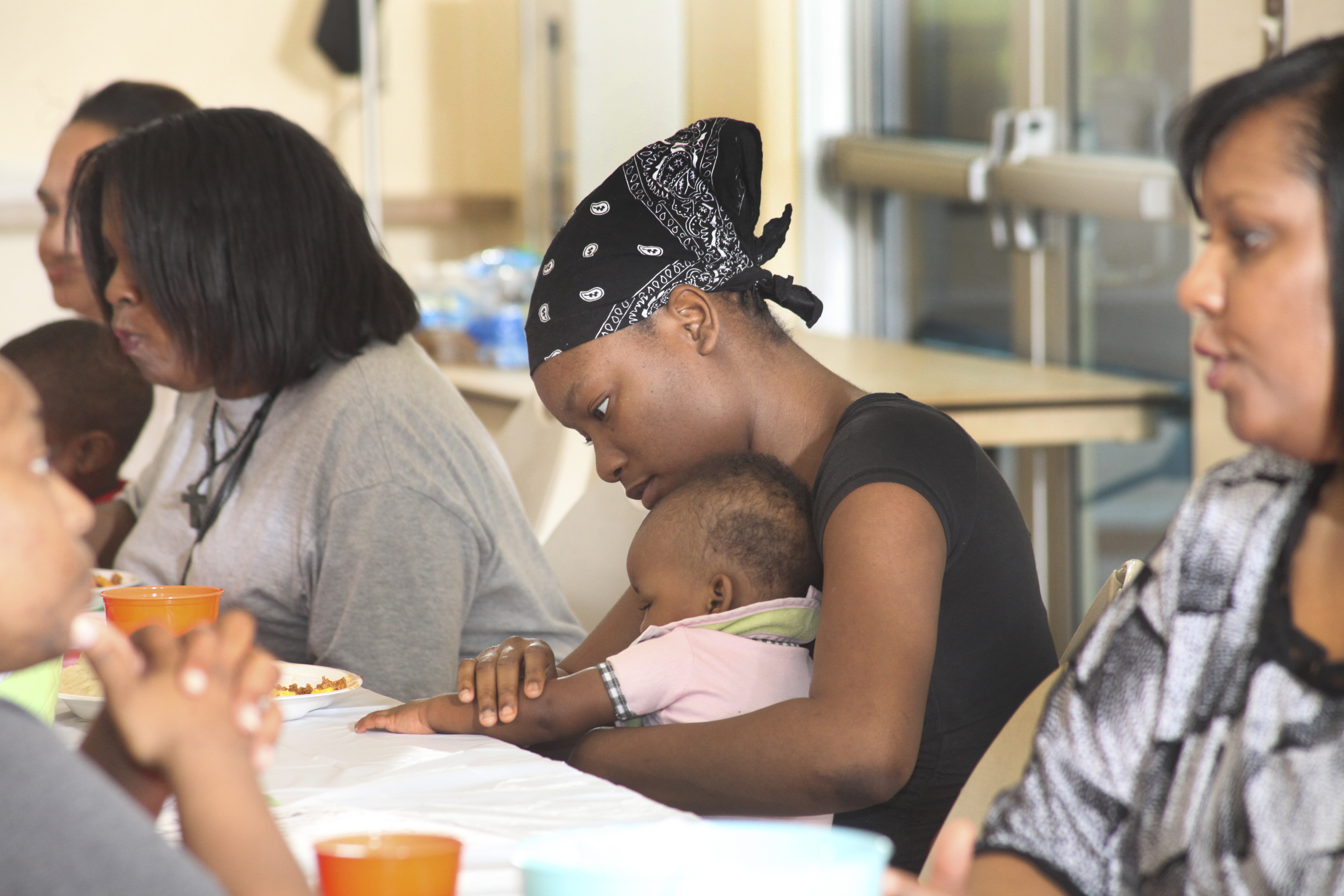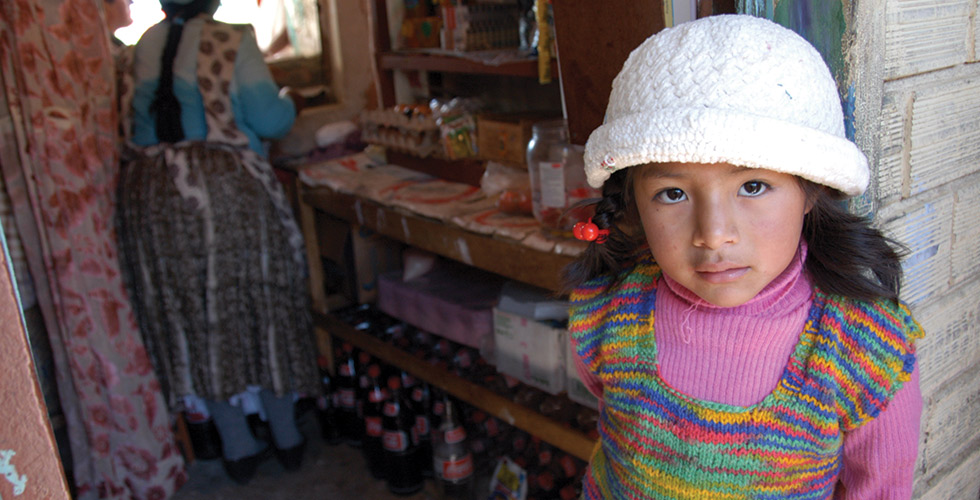
Learn more about the nation’s largest outreach to the children of prisoners and how a simple Christmas gift can have a positive influence on a child, family, and community.

Learn more about the nation’s largest outreach to the children of prisoners and how a simple Christmas gift can have a positive influence on a child, family, and community.

A recent Maryland policy is making it even harder than it already is to parent from behind bars.
Starting this past November, visitors (adults and children alike) were banned from embracing their incarcerated loved ones at the beginning and during visitations (visitors are allowed a brief hug at the very end of a visit).
He remembers it like it was yesterday.
The day Zeeke Griffin’s dad was arrested was the day of 7th-grade basketball try-outs—the day his dad had been planning and preparing him for all year.
“I figured he’d just be home in the afternoon,” Zeeke recalls.
The following is a version of remarks given by Prison Fellowship President and CEO Jim Liske at Movement Day NYC, a gathering of Christian leaders discussing how to cultivate Gospel movements in urban areas across the country. For more information about Movement Day, visit www.movementday.com.

Rosita wasn’t your typical kindergartner. She had no dolls to cherish. No friends to play with. Her childhood dreams were more like nightmares. At 5 years old, she had never experienced even a single moment of freedom.
With Christmas just a few weeks away, thousands of Angel Tree children are still unassigned. This means that boys and girls in your own community may not get to unwrap a gift from their mom or dad in prison and hear the Good News of our Savior. Will you help share the joy of God's greatest gift to us this season?
Thanks to our generous partners, My’lon and Montrese know that they’re loved, and that they have a friend in Jesus, who will never leave them.
This past winter, Russell connected with another group of people who needed his help: the 2.7 million children in America with an incarcerated parent.
The following post originally appeared as a BreakPoint radio commentary.
For a long time, Prison Fellowship has believed that the United States incarcerates far too many people at far too high a cost. What’s more, that cost does not take into account an important set of victims: the innocent children of offenders.
Since 1982, Prison Fellowship’s Angel Tree programs have provided a springboard for reaching out to the children and families of the incarcerated. The Angel Tree Christmas program is usually the first step toward helping shattered families reunite. But Angel Tree’s outreach goes far beyond Christmas. Hundreds of faithful Angel Tree churches are now extending their ministry into summer camping.
Angel Tree has been a ministry of Prison Fellowship for 30 years. What began as a small outreach to prisoners' children in a Birmingham, Alabama, mall has grown to be a ministry that brings Christmas gifts and the Gospel to thousands of children across the nation. And the ministry is about more than gifts. It is about building redemptive relationships between churches and hurting families. But to really understand the value of the effort, it is important to understand the world of an inmate's child.
Children of the incarcerated have committed no crime, but the penalty they pay for their parents’ crimes is steep. In many cases, they forfeit virtually everything that matters to them: their home, their friends, their safety, their public status, and personal self-image. Most damaging, however, is the loss of their parent, who may have been a law-breaker but was still the child’s primary source of comfort and affection.
Children of prisoners mourn the loss of their incarcerated parent. Some mourn the loss of the parent who was previously available to care for them. Others mourn the loss of the parent who “could have been,” if only the parent hadn’t made that mistake or hadn’t gotten caught.
To help family ministry volunteers, we have prepared a list of Frequently Asked Questions (FAQs) about the children of prisoners. This resource covers understanding what the children experience, obstacles for visitation, parent child relationships, and much more.
Restoration Partners give monthly to bring life-changing prison ministry programs to incarcerated men and women across the country.
JOIN NOW